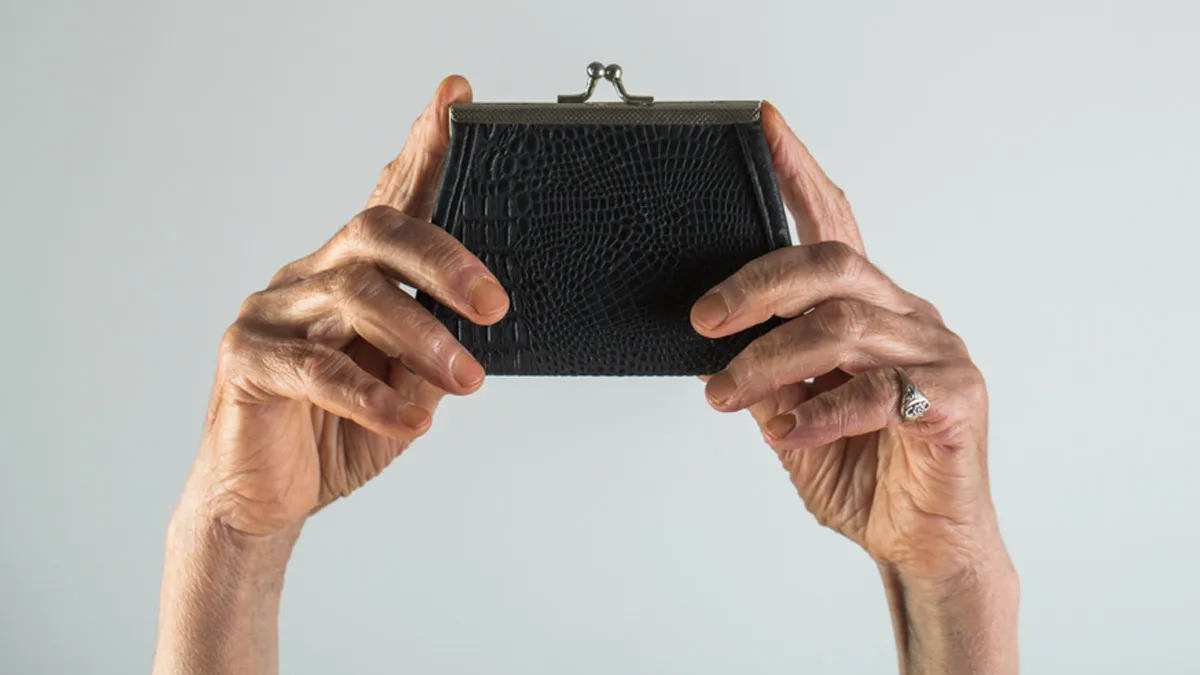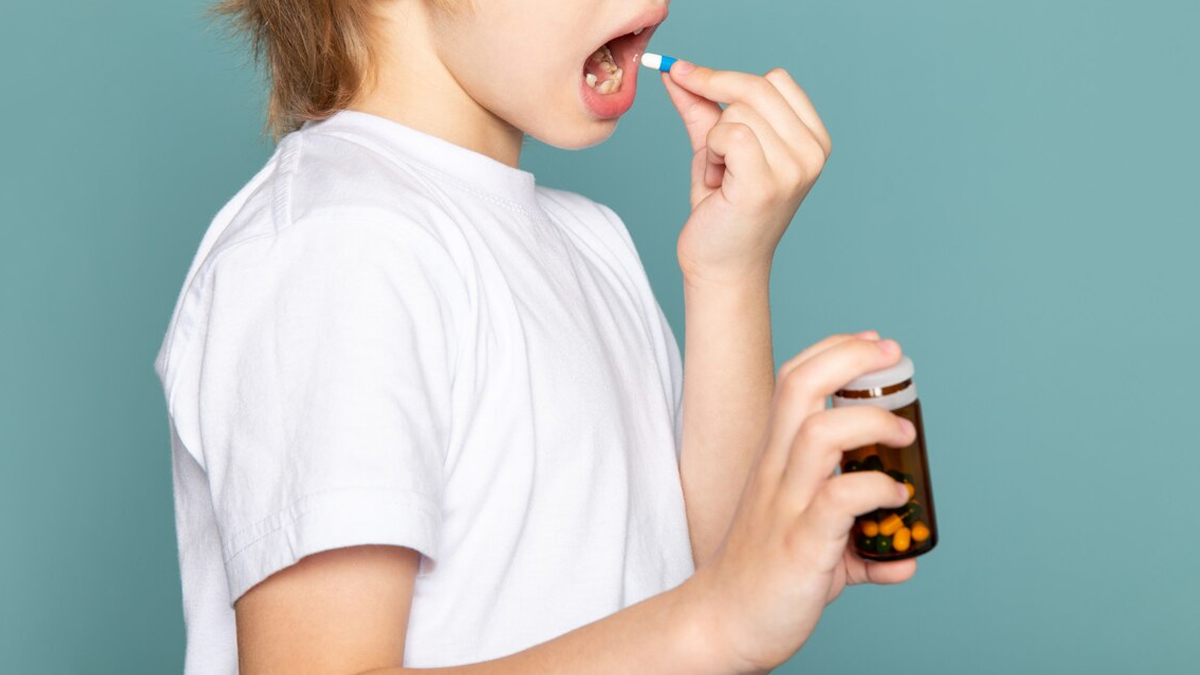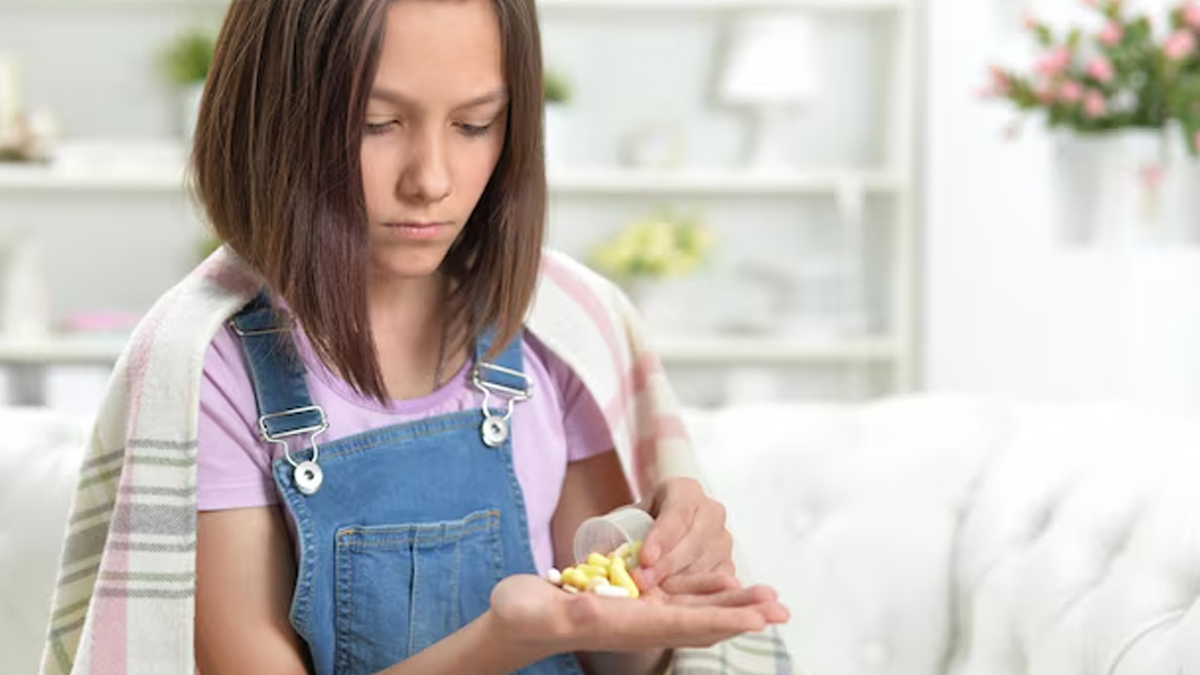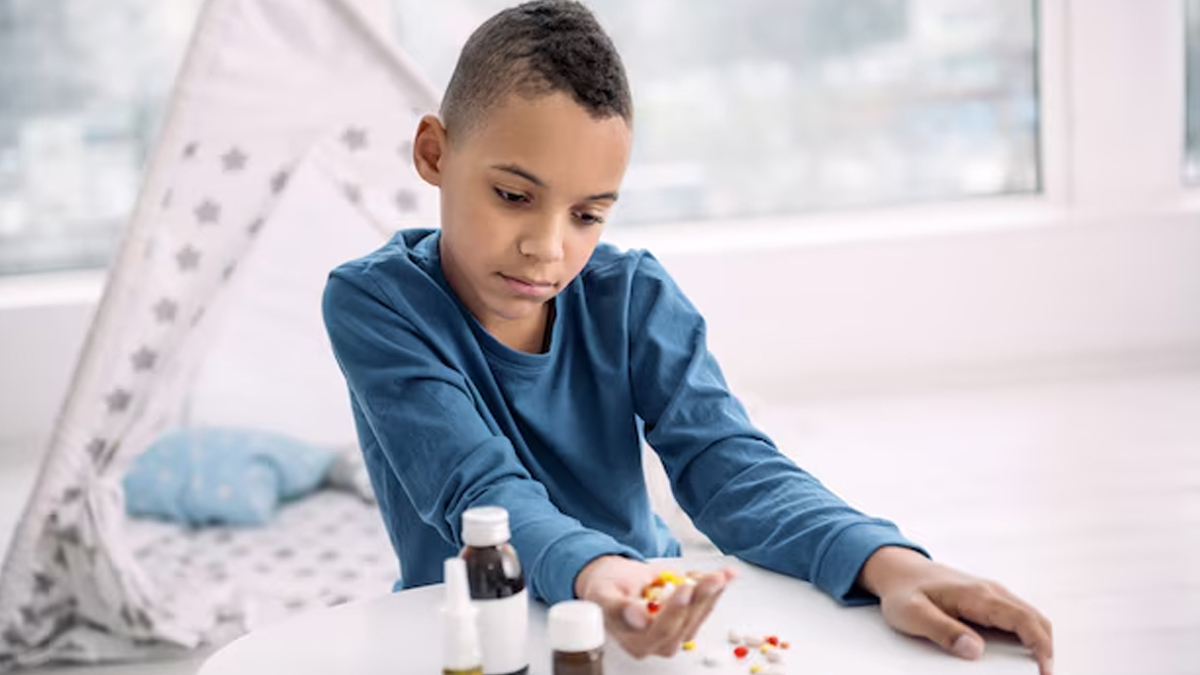
It is a common understanding that older adults feel the closest to their grandchildren. With the holiday season coming up, many parents take their kids to visit their grandparents and spend quality time with them. However, during this time, some amount of vigilance is necessary, especially if your child is still a toddler and has the habit of putting everything in their mouth.
Table of Content:-
Granny's Purse Syndrome is a condition gaining attention, with paediatricians like Dr Meghan Martin (@beachgem10) raising awareness on TikTok. Explaining the condition, she said that young children, who are not under supervision, often search their grandparents' bags, pouches, and cabinets, where they find unsecured medications. "Often the medications are on low shelves or in their purses or in medication containers that are not child resistant," she shared in a video. These medications can range from pills used for pain, depression, heart health, and blood pressure, which are not only dangerous but can also cause poisoning if consumed by the child.
To get more insights on the condition and to help you identify the signs and symptoms, OnlyMyHealth spoke to Dr Asmita Mahajan, Consultant Neonatologist and Paediatrician, SL Raheja Hospital, Mahim—A Fortis Associate, who also shared steps parents can take to avoid such scenarios.
Also Read: Here Are Clear Signs of Food Poisoning in Children As Per Different Bacteria Types
Understanding Granny’s Purse Syndrome And Signs Of Medicine Poisoning In Children

Granny’s purse syndrome is when children come across their grandparents’ medications lying around in their purses or cabinets, without being properly stored or secured. As per Dr Martin, one of the reasons is that grandparents are not used to having kids around.
Such instances can often lead to accidental or intentional consumption of the medications, leading to poisoning in certain cases.
“Medications bought over-the-counter or as per prescriptions are often found lying around in the homes, and if a child accidentally swallows or ingests a significant quantity of a medication that has been lying unattended, it can lead to medicine poisoning,” said Dr Mahajan.
She added, “Children might get access to common medicines like cough syrups, diabetes and thyroid medication, and pain medications like paracetamol, aspirin, etc., which might be lying within their reach, and end up ingesting them. Children get attracted to the shiny, bright colours of the packaging that supplements like vitamins come in, and they might try to eat the same.”
A 2022 study on acute poisoning in children, published in the journal Acta Biomedica, revealed that 83.7% of incidents occurred at home, with mothers being the primary caregivers in 61.5% of cases. Most poisonings (91.8%) were due to ingestion, while inhalation and contact accounted for 4.1%. The most common toxic agents were medications (39.4%), particularly in adolescents over 12 years old (47%), followed by household supplies (26.6%), which were the leading cause in children under 2 years (29.5%) and those aged 6–12 years (38%).
According to the doctor, medicine poisoning can be of various types depending on the medicine that is involved, and hence the symptoms of medicine poisoning will also be different. However, some common symptoms that parents should be on the lookout for are:
- Vomiting
- Loose motion
- Stomach ache
- Unusual sleepiness, drowsiness, or losing consciousness
- Difficulty in breathing or apnoea (when breathing stops)
If a child starts to exhibit symptoms of restlessness, irritability, drooling, or seizures, it is best to seek immediate medical attention.
How Can Parents Prevent Medicine Poisoning In Children?

Usually, medicine poisoning occurs in children who have become mobile or have started walking, said Dr Mahajan, adding that around two to three years of age is when these kids can reach out to shelves or tables and also learn to open bottles or containers and can end up ingesting medicines that are kept unattended and within their reach. Keeping these factors in mind, here are some steps to avoid medicine poisoning in children:
- Use tight containers to store medicines so that children cannot open them easily. Store all the medicines in a locked cupboard or shelf that they cannot reach.
- Try not to leave a child unsupervised when there are medicines lying around in the house.
- When a child becomes old enough to understand, please explain to them that medicines, if eaten without asking adults, can harm them.
- Parents should not medicate their children without consulting their paediatrician; do not give dosages randomly to the child because you end up causing medicine poisoning.
Also Read: High Lead Levels Found In Haldi: New Study Reveals Hidden Danger In Everyday Spice
Immediate Steps To Take In The Event Of Medicine Poisoning

If you suspect your child has medicine poisoning, follow these urgent steps:
- Remove the medicine bottle or tablets from the hands of the child.
- Remove any visible tablet or medicines from the child's mouth with your clean fingers and rinse/gargle.
- Ask the doctor or poison helpline if available whether it is safe or necessary to induce vomiting, as that may in fact prove harmful to the child, and follow accordingly.
- When you take the child to the doctor, please take along the remaining bottle of medicines safely with you so that the doctor can check the exact content that is present in the medicines and treat your child accordingly.
Additionally, if you suspect your child of any sort of medicine poisoning, immediately seek medical help and get your child checked by a specialist so that they can pick up on subtle initial signs and start treatment without delay.
Conclusion
Granny’s Purse Syndrome is a concerning health issue, which can affect any child and may have severe consequences. While parents should ensure that they do not leave their children unattended at home, especially when they visit their grandparents’ home, it is also crucial to be aware of the immediate steps that should be taken in case their children experience signs of medicine poisoning.
Read Next
Are You Overdressing Your Baby This Winter? 5 Signs To Know If Your Baby Is Too Hot Or Cold
How we keep this article up to date:
We work with experts and keep a close eye on the latest in health and wellness. Whenever there is a new research or helpful information, we update our articles with accurate and useful advice.
Current Version
